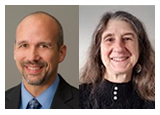|
 As an international association with longstanding values that include a commitment “to equity, diversity, multilingualism, multiculturalism, and individuals’ language rights,” TESOL International Association has always sought to be a diverse and inclusive association that listens to, hears, and empowers the voices of all our members. Since electing our first nonnative English speaker, Jun Liu, as president in 2004 to our first Latina president, Luciana de Oliveira, in 2016, we have seen this commitment most readily displayed through geography. Through birth, citizenship, or residency, our current board of 11 represents eight different countries. As an international association with longstanding values that include a commitment “to equity, diversity, multilingualism, multiculturalism, and individuals’ language rights,” TESOL International Association has always sought to be a diverse and inclusive association that listens to, hears, and empowers the voices of all our members. Since electing our first nonnative English speaker, Jun Liu, as president in 2004 to our first Latina president, Luciana de Oliveira, in 2016, we have seen this commitment most readily displayed through geography. Through birth, citizenship, or residency, our current board of 11 represents eight different countries.
Although TESOL has made significant efforts to have geographic diversity represented in its leadership at all levels, other forms of diversity have not been as well represented. This became quite clear as a result of a Teaching Tip session at the 2019 TESOL Convention in Atlanta. The presentation was about offensive language in the classroom, a topic which many teachers struggle with and which the proposal reviewers felt would be appropriate. Unfortunately, the topic, and specifically the use of racially offensive language, was not addressed in a sufficiently sensitive manner. A follow-up meeting the Friday of the convention with then incoming TESOL President Deborah Healey, TESOL senior staff, and eight African American TESOLers, including several from Georgia TESOL, brought out more fundamental issues. These included diversity and inclusion in the adjudication process and broader representation at the convention and in various levels of TESOL leadership. In order to deal with these issues head on, we have created the Diverse Voices Task Force, with a mandate to provide clear recommendations to the TESOL Board of Directors to cultivate diverse leadership and a culture of inclusion in the association.
The values we all share, our vision to be the trusted global authority for knowledge and expertise in English language teaching, and our mission to advance the expertise of professionals who teach English to speakers of other languages in multilingual contexts worldwide demand an association that is diverse and inclusive. Moreover, our success in meeting our strategic outcomes of increasing our Global Presence and Connectivity, strengthening our Knowledge and Expertise, and raising the Voices of all TESOL educators to advocate for ourselves and our students depends on all TESOL voices being included. We must have diverse representation in TESOL events, publications, and leadership, and our programs and activities must be inclusive. We seek to address diversity and inclusion in all areas of the association’s work, from our Convention to our communities of practice to our leadership. We are looking to the Diverse Voices Task Force to guide our work in this regard.
Our open call for volunteers brought in an unprecedented number of applications from TESOL members passionate about the cause. Following this call, we have brought together 10 TESOL members to form the task force: Co-chairs Kisha Bryan and Eric Dwyer, and members Abdulsamad Humaidan, Arlene Costello, Federico Salas-Isnardi, Mary Romney, Noreen Mirza, Phoenicia Grant, Sara Kangas, and Yasmine Romero. The staff partner is Rita Buckner, and the board liaison is Past President Luciana de Oliveira.
The charge of the Task Force is as follows:
- Develop a vision statement on diversity and inclusion for the association.
- What does diversity and inclusion mean for TESOL International Association?
- What are the different dimensions of diversity within the association?
- Research and report on the ways that other associations address diversity and inclusion and diversify their leadership.
- Develop recommendations on how TESOL International Association can cultivate diverse leadership at all levels within the association.
- Develop recommendations on how we can build a culture of inclusion across the association.
- Identify possible mechanisms the association can employ to develop diverse leaders for the benefit of the field and profession.
We have asked the task force to deliver an initial progress report for the October 2019 Board of Directors meeting and an update for the Executive Committee by the January 2020 online meeting. They will deliver preliminary findings, including a vision statement, for board discussion at the Denver Convention in March 2020. We hope that they will also be able to hold an open session so that they can share their progress with TESOL members directly. We expect the task force will issue additional updates to the membership throughout the process. The final report, with recommendations, will be submitted in September 2020 for the board’s consideration at its meeting in October 2020.
As an international association, we want to be sure that we are as inclusive as possible and in ways that make sense in all of our contexts. We hope to start with recommendations for what to do in the immediate term and then establish a mechanism that will promote inclusive leadership for the association in an ongoing way. We also hope to develop ways that our association can help our affiliates and other groups become more inclusive. Our ultimate goal is to live up to the values we all share. Like any long-term process, this will not be a quick fix. We will all be part of making TESOL leadership and members truly representative of the global field as a whole. As we hear from the Diverse Voices Task Force in the next months, let us all reflect on how we as individuals can ensure that our association and all of our related connections are truly inclusive.
Deborah Healey
TESOL President
Email: dhealey@tesol.org
Twitter: @DL_Healey
Christopher Powers
TESOL Executive Director
Email: cpowers@tesol.org
Twitter: @TESOL_Powers
|